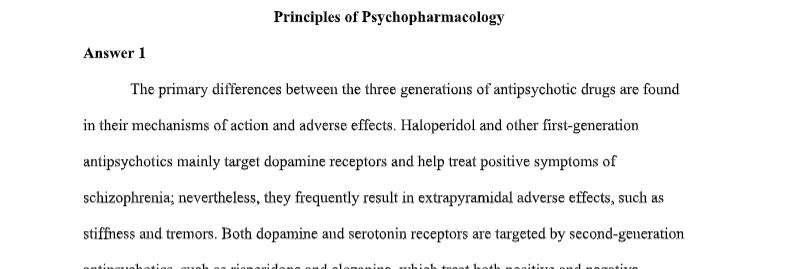Principles of Psychopharmacology
1. Discuss the similarities and differences of the three generations of anti-psychotic medications.
2. How do the current anti-psychotics work on the brain? What are the contraindications of any of the commonly prescribed anti-psychotics?
3. What are three of the most commonly diagnosed psychological disorders that are commonly treated with medications? Would other forms of treatment besides medication be more appropriate? Why or why not?
4. Based on diagnostic criteria for Major Depressive Disorder in the current DSM, identify and discuss three – five of said criteria, and what you would document in the client’s file. Include any referrals or consultation related to medication management that are needed and why.
5. Describe three medications that are used to treat substance use disorders.
6. Discuss the brain reward pathway and what counselors should know about said pathway when treating substance use disorders.
7. Discuss the current diagnostic criteria from the DSM when evaluating and assessing for both mental health and substance use disorders.
8. When working with clients taking commonly prescribed medications for psychiatric disorders, identify and discuss potential impacts on behavior, mood, and sleep that you should document, as well as when you would refer to a physician for medication evaluation follow up.
Answer Preview for Principles of Psychopharmacology

APA
1200 Words
